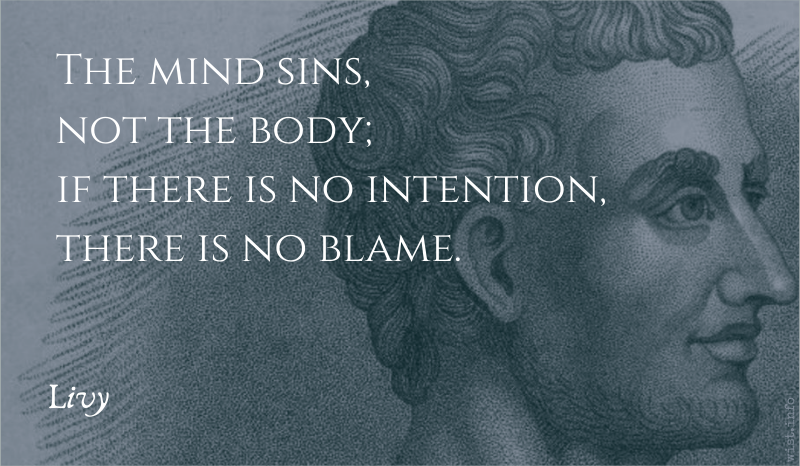If you look at someone and see no reasonable probability you’ll ever have a positive or instructive interaction with them, block now and move on.
Ken White (b. c. 1969) American constitutional and criminal attorney, prosecutor, blogger
Twitter (2022-09-13)
(Source)
Commonly known as "The Popehat Rule" (after White's Twitter account handle). An earlier version reads:Block early, block often, block whenever you feel "I think I would enjoy not knowing this person.
[Twitter (2022-06-23)]
This should not be confused with Popehat's Rule of Goats or Law of Goats, e.g.:He who fucks goats, either as part of a performance or to troll those he deems has overly delicate sensibilities, is simply a goatfucker.
[Urban Dictionary, "Popehat's Law of Goats"]If you fuck goats because it upsets people you hate, you're still a goatfucker. Nobody cares that you're an insincere goatfucker.
[Twitter (2017-02-19)]The Rule of Goats: even if you say you're only fucking goats ironically, you're still a goatfucker.
[Twitter (2017-04-30)]If you kiss a goat, even if you say you’re doing it ironically, you’re still a goat-kisser.
["Is Alex Jones an extreme conspiracy theorist or a giant troll?" Los Angeles Times (2017-04-11) (Paraphrased "for this family newspaper")]
Quotations about:
intention
Note not all quotations have been tagged, so Search may find additional quotes on this topic.
But evil is wrought by want of Thought,
As well as want of Heart!Thomas Hood (1799-1845) British humorist and poet
“The Lady’s Dream,” st. 16 (1844)
(Source)
First printed in Hood’s Magazine.
In all such oaths we are not to attend to the mere form of words, but the true design and intention of them.
[Semper autem in fide quid senseris, non quid dixeris, cogitandum.]
Marcus Tullius Cicero (106-43 BC) Roman orator, statesman, philosopher
De Officiis [On Duties; On Moral Duty; The Offices], Book 1, ch. 13 (1.13) / sec. 40 (44 BC) [tr. Cockman (1699)]
(Source)
(Source (Latin)). Alternate translations:In obligations of faith, it is the meaning always, not the words that are to be considered.
[tr. McCartney (1798)]In a promise, what you thought, and not what you said, is always to be considered.
[tr. Edmonds (1865)]In a promise, what you mean, not what you say, is always to be taken into account.
[tr. Peabody (1883)]A promise must be kept not merely in the letter, but in the spirit.
[ed. Harbottle (1906)]In the matter of a promise one must always consider the meaning and not the mere words.
[tr. Miller (1913)]You should always, in a matter of trust, think of what you mean, not of what you say.
[tr. Edinger (1974)]
We were entrusted to one another, in the days which mattered, Clare thought. Entrusted to one another by chance, not choice. Chance, and its agents time and place. Chance is better than choice; it is more lordly. In its carelessness it is more lordly. Chance is God, choice is man. You — she thought, looking at the bed — chanced not chose to want us again.
Elizabeth Bowen (1899-1973) Irish author
The Little Girls, ch. 7 (1964)
(Source)
Quoted, in abbreviated form, in the foreword to her Pictures and Conversations (1975):Chance is better than choice; it is more lordly. Chance is God, choice is man.
Don’t be a man of “Intentions.” The world gives a man credit only for his deeds and, often, not even for them.
Minna Antrim (1861-1950) American epigrammatist, writer
Don’ts for Bachelors and Old Maids (1908)
(Source)
You can tell the man who rings true from the man who rings false, not by his deeds alone, but also by his desires.
[Δόκιμος ἀνὴρ καὶ ἀδόκιμος οὐκ ἐξ ὧν πράσσει μόνον, ἀλλὰ καὶ ἐξ ὧν βούλεται.]
Democritus (c. 460 BC - c. 370 BC) Greek philosopher
Frag. 68 (Diels) [tr. Bakewell (1907)]
(Source)
Diels citation "68. (40 N.) DEMOKRATES. 33." Bakewell lists this under "The Golden Sayings of Democritus." Freeman notes this as one of the Gnômae, from a collection called "Maxims of Democratês," but because Stobaeus quotes many of these as "Maxims of Democritus," they are generally attributed to the latter.
Alternate translations:
- "A man is approved or rejected not only by what he doth, but by what he wills." [Hammond (1845)]
- "The worthy and the unworthy man are to be known not only by their actions, but also their wishes." [tr. Freeman (1948)]
- "One of esteem and one without it do not only act for different reasons but they desire for different reasons too." [tr. @sententiq (2018), fr. 67]
- "Accomplished or unaccomplished we shall call a man not only from what he does but from what he desires, too." [Source]
- "The worthy and unworthy are known not only by their deeds, but also by their desires." [Source]
The mind sins, not the body; if there is no intention, there is no blame.
[Mentem peccare, non corpus, et unde consilium abfuerit, culpam abesse.]
Livy (59 BC-AD 17) Roman historian [Titus Livius]
Ab Urbe Condita [From the Founding of the City; The History of Rome], Book 1, ch. 58 (27-9 BC)
Reassurances given to Lucretia, wife of Collatinus, after her rape by Sextus Tarquin. She still kills herself.
Different sources use abfuerit or afuerit. Restated as a legal term, it's usually given as Mens peccat, non corpus, et unde consilium abfuit, culpa abest.
Alt. trans.:
- "That it is the mind sins, not the body; and that where intention was wanting guilt could not be." [tr. Spillan (1896)]
- "The mind sins, not the body, and there is no guilt when intent is absent." [tr. Luce]
- "The mind sins, not the body; and where the power of judgment has been absent, guilt is absent." [Source]
- "The mind alone was capable of sinning, not the body, and that where there was no such intention, there could be no guilt." [tr. Baker (1823)]
- "It is the mind that sins, not the body, and where there has been no consent there is no guilt." [tr. Roberts (1905)]
- "It is the mind that sins, not the body; and that where purpose has been wanting there is no guilt." [tr. Foster (1919)]
- "It is the will only that is capable of sinning, not the body; and where there is no intention, there can be no guilt." [Source]
There may be no good reason for things to be the way they are.
Alain de Botton (b. 1969) Swiss-British author
The Consolations of Philosophy, ch. 1 “Consolations for Unpopularity,” sec. 4 (2000)
(Source)
Man has no greater enemy than himself. I have acted contrary to my sentiments and inclination; throughout our whole lives we do what we never intended, and what we proposed to do, we leave undone.
Francesco Petrarca (1304-1374) Italian scholar and poet [a.k.a. Petrarch]
(Attributed)
(Source)
Quoted in Johann Georg Ritter von Zimmermann, An Examination of the Advantages of Solitude and of Its Operations, ch. 5 (1783) [tr. F.S. (1808)].
It’s important to be kind. You can’t know all the times that you’ve hurt people in tiny, significant ways. It’s easy to be cruel without meaning to be. There’s nothing you can do about that. But you can choose to be kind. Be kind.
Good impulses are naught, unless they become good actions.
[Les bons mouvements ne sont rien, s’ils ne deviennent de bonnes actions.]Joseph Joubert (1754-1824) French moralist, philosopher, essayist, poet
Pensées [Thoughts], ch. 5 “Des Passions et des Affections de l’Âme [On the Soul],” ¶ 75 (1850 ed.) [tr. Calvert (1866)]
(Source)
What can any individual do? Of that, every individual can judge. There is one thing that every individual can do, — they can see to it that they feel right. An atmosphere of sympathetic influence encircles every human being; and the man or woman who feels strongly, healthily and justly, on the great interests of humanity, is a constant benefactor to the human race. See, then, to your sympathies in this matter! Are they in harmony with the sympathies of Christ? or are they swayed and perverted by the sophistries of worldly policy?
For man proposes but God disposes. The path a person takes does not lie within himself.
[Nam homo proponit, sed Deus disponit, nec est in homine via ejus.]
Thomas à Kempis (c. 1380-1471) German-Dutch priest, author
The Imitation of Christ [De Imitatione Christi], Book 1, ch. 19, v. 2 (1.19.2) (c. 1418-27) [tr. Creasy (1989)]
(Source)
Thomas saying that, regardless of a person's good intentions to act virtuously, they are dependent on God's grace to make that actually happen.
The phrase "Man proposes but God disposes" (or the Latin original of it) was coined by Thomas, which makes it ironic where some later translators put it in quotations or self-referent indeeds.
The text given relates to, is frequently footnoted to, and even is quoted directly from:
- Proverbs 16:9 ("A man's heart deviseth his way: but the Lord directeth his steps." [KJV])
- Jeremiah 10:23 ("O Lord, I know that the way of man is not in himself: it is not in man that walketh to direct his steps." [KJV])
(Source (Latin)). Alternate translations:For man purposeth, but God disposeth: nay, the way that man shall walk in this world is not in himself but in the grace of God.
[tr. Whitford/Raynal (1530/1871)]Man proposes, but God disposes. The way that a man shall walk in this world is found not in himself, but in the grace of God.
[tr. Whitford/Gardiner (1530/1955)]For man doth propose but God doth dispose, neither is the way of man in his owne hands.
[tr. Page (1639), 1.19.9]A Man's Heart deviseth his Way, but the Lord directeth his Steps, says Solomon: We may contrive and act as seems most adviseable; by which we do so, are from the Lord, so is the Event of our having done it entirely in his disposal.
[tr. Stanhope (1696; 1706 ed.), 1.19.3]Tho' the heart of man deviseth his way, yet the Lord ordereth the event; and that it is not in man that walketh, to direct his steps.
[tr. Payne (1803)]For man proposes, but God disposes; neither is the way of man in himself.
[Parker ed. (1841); Bagster ed. (1860); Anon. (1901)]For man proposes but GOD disposes: nor is it in man to direct his steps.
[tr. Dibdin (1851)]For man proposeth, but God disposeth; and the way of a man is not in himself.
[tr. Benham (1874)]For man, indeed, proposes but God disposes, and God's way is not man's.
[tr. Croft/Bolton (1940)]For man proposes, but God disposes, and a man's road is not within himself.
[tr. Daplyn (1952)]Man proposes, but God disposes, and man's destiny is not in his own hands.
[tr. Sherley-Price (1952)]They know that "man proposes, and God disposes"; the course of a man's life is not what he makes it.
[tr. Knox-Oakley (1959)]For man proposes, God disposes, and it is not for man to choose his lot.
[tr. Knott (1962)]Man indeed proposes, bit it is God who disposes nor is the course of man in his power as he goes his way.
[tr. Rooney (1979)]
Charity is a virtue of the heart, and not of the hands, says an old writer. Gifts and alms are the expressions, not the essence of this virtue. A man may bestow great sums on the poor and indigent without being charitable, and may be charitable when he is not able to bestow anything. Charity is therefore a habit of good will, or benevolence in the soul, which disposes us to the love, assistance, and relief of mankind, especially of those who stand in need of it.
Joseph Addison (1672-1719) English essayist, poet, statesman
Essay (1713-09-21), The Guardian, No. 166
(Source)





















